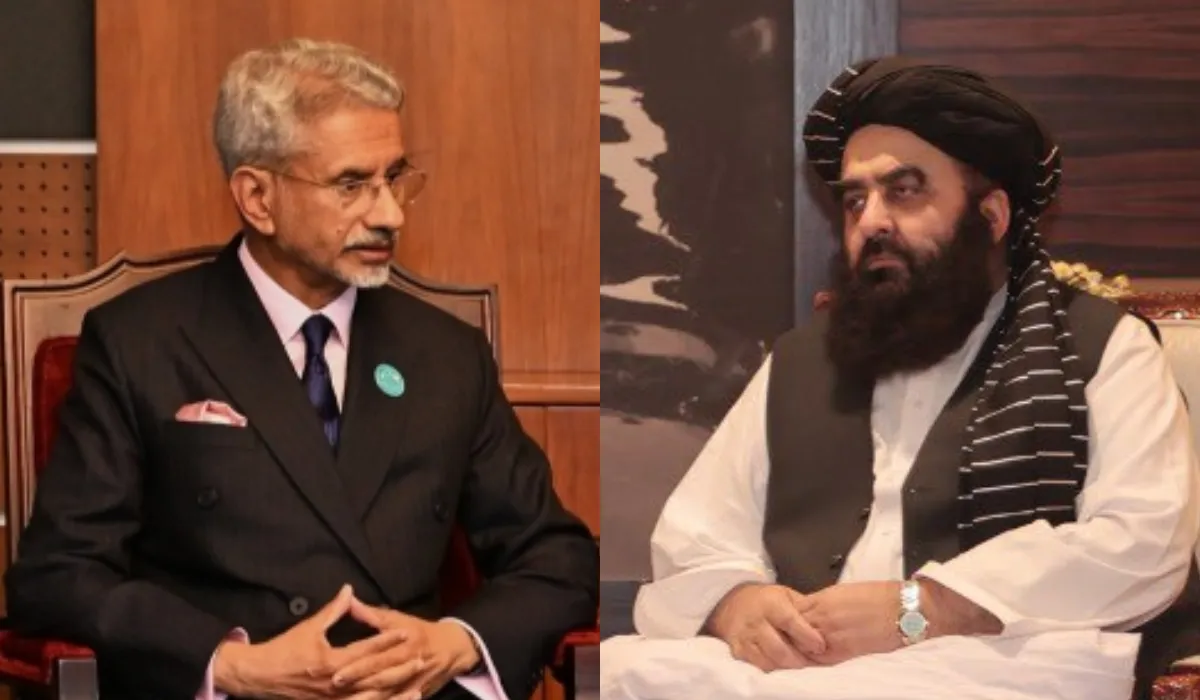

India Signals Major Policy Shift, Set to Reopen Embassy in Kabul
In a significant strategic development, India has announced its decision to upgrade its diplomatic presence in Afghanistan to a full-fledged embassy, signaling a major recalibration of its policy towards the Taliban regime. The announcement was made by External Affairs Minister S. Jaishankar during a landmark meeting with the visiting Taliban Foreign Minister, Amir Khan Muttaqi, on Friday. This high-level interaction, the most significant since the Taliban's takeover of Kabul in 2021, marks a new chapter in India's engagement with its historically important neighbor.
The move to restore full diplomatic relations comes four years after New Delhi closed its embassy and consulates following the collapse of the previous government. While India has not yet officially recognized the Taliban administration, this decision reflects a pragmatic approach to protecting its strategic interests and adapting to the evolving geopolitical landscape of the region. A smaller Indian technical team has been stationed in Kabul since 2022, but the upgrade to a full embassy represents a much deeper and more formal level of engagement.
A Strategic Opening Amid Regional Tensions
India's renewed outreach appears to be strategically timed, capitalizing on the growing friction between the Taliban and Pakistan. The relationship between Kabul and Islamabad has become increasingly fraught over disputes related to cross-border terrorism and Pakistan's recent policy of repatriating thousands of Afghan refugees. This deterioration has created a valuable diplomatic opening for India to re-engage with the Afghan administration and counter the influence of its regional rival.
This strategic context was clearly articulated during the meeting between the two foreign ministers. In his opening remarks, Jaishankar directly addressed the "shared threat of cross-border terrorism," a thinly veiled reference to Pakistan. He emphasized the need for the two nations to coordinate their efforts to combat this menace in all its forms, indicating that security cooperation will be a cornerstone of the renewed relationship. Jaishankar also expressed appreciation for the Taliban's sensitivity to India's security concerns, suggesting that back-channel communications have been productive.
Rebuilding Ties on Common Ground
The discussions in New Delhi were framed around identifying common interests and fostering closer cooperation. Jaishankar's personal meeting with Muttaqi was described as having a "special value," allowing for a direct exchange of perspectives that can pave the way for a more robust partnership. While navigating the complexities of engaging with a regime it does not formally recognize, India is clearly prioritizing the stability of the region and the security of its own borders.
In his announcement, Jaishankar also made it a point to reiterate India's unwavering commitment to the "sovereignty, territorial integrity, and independence of Afghanistan." This statement is crucial, as it positions India as a partner that respects Afghanistan's autonomy, drawing a contrast with other regional powers. The decision to reopen the embassy is therefore not just a diplomatic formality but a powerful statement of intent. It signals India's return as a key player in Afghanistan's future, ready to engage on issues of mutual concern, from security and counter-terrorism to development and regional prosperity.
Strategic Highlights
India will upgrade its technical mission in Kabul to a full-fledged embassy, restoring full diplomatic relations with Afghanistan after four years.
The decision was announced after a high-level meeting between External Affairs Minister S. Jaishankar and Taliban Foreign Minister Amir Khan Muttaqi.
This major policy shift is strategically timed to capitalize on the growing tensions between the Taliban and Pakistan.
The renewed engagement will focus on shared interests, particularly coordinating efforts to combat the threat of cross-border terrorism.